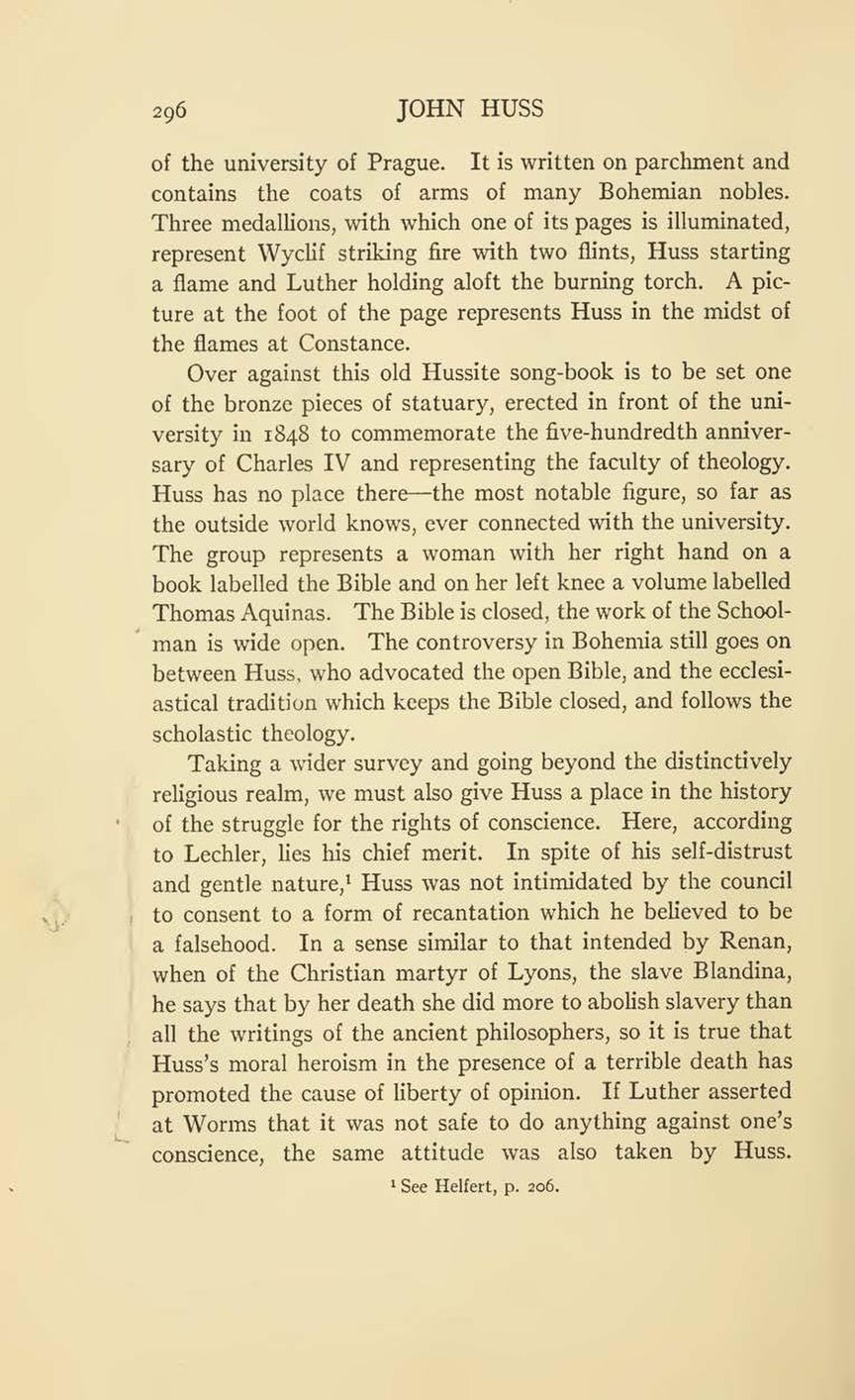of the university of Prague. It is written on parchment and contains the coats of arms of many Bohemian nobles. Three medallions, with which one of its pages is illuminated, represent Wyclif striking fire with two flints. Huss starting a flame and Luther holding aloft the burning torch. A picture at the foot of the page represents Huss in the midst of the flames at Constance.
Over against this old Hussite song-book is to be set one of the bronze pieces of statuary, erected in front of the university in 1848 to commemorate the five-hundredth anniversary of Charles IV and representing the faculty of theology. Huss has no place there—the most notable figure, so far as the outside world knows, ever connected with the university. The group represents a woman with her right hand on a book labelled the Bible and on her left knee a volume labelled Thomas Aquinas. The Bible is closed, the work of the Schoolman is wide open. The controversy in Bohemia still goes on between Huss, who advocated the open Bible, and the ecclesiastical tradition which keeps the Bible closed, and follows the scholastic theology.
Taking a wider survey and going beyond the distinctively religious realm, we must also give Huss a place in the history of the struggle for the rights of conscience. Here, according to Lechler, lies his chief merit. In spite of his self-distrust and gentle nature,[1] Huss was not intimidated by the council to consent to a form of recantation which he believed to be a falsehood. In a sense similar to that intended by Renan, when of the Christian martyr of Lyons, the slave Blandina, he says that by her death she did more to abolish slavery than all the writings of the ancient philosophers, so it is true that Huss’s moral heroism in the presence of a terrible death has promoted the cause of liberty of opinion. If Luther asserted at Worms that it was not safe to do anything against one’s conscience, the same attitude was also taken by Huss.
- ↑ See Helfert, p. 206.
